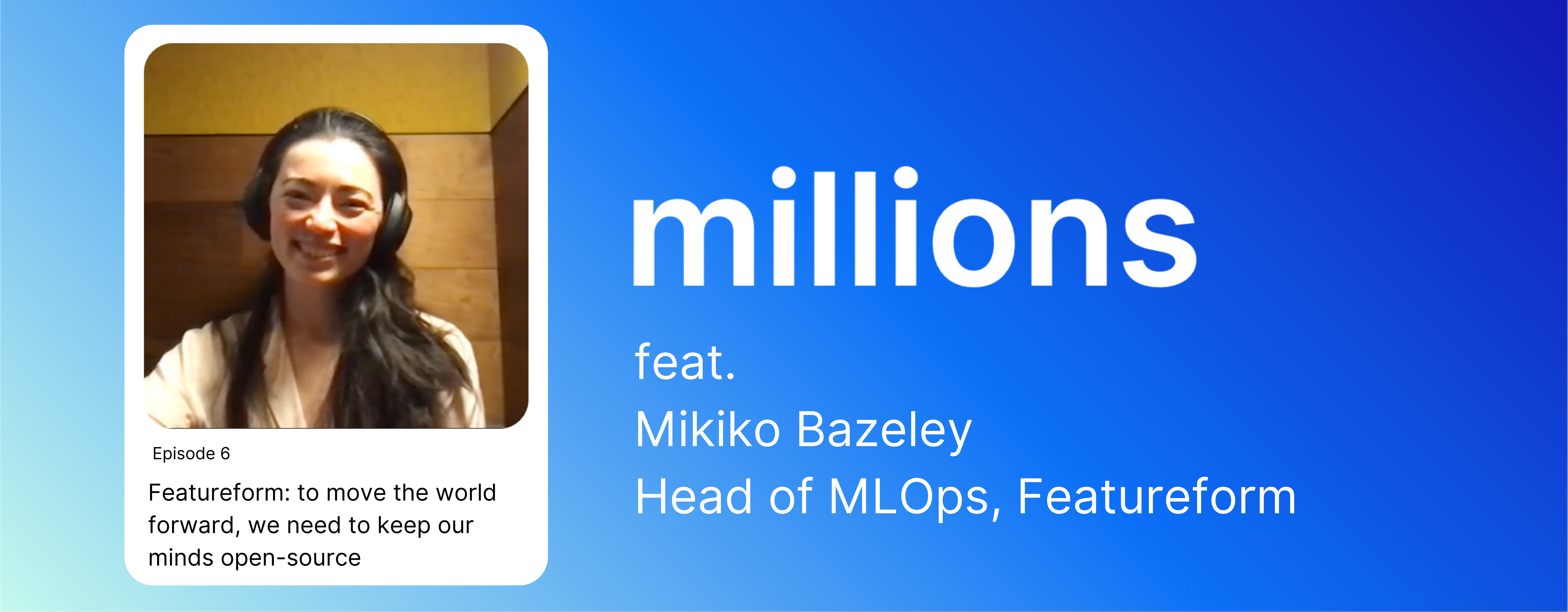Designing machine learning platforms for the future
Featureform is a virtual feature store that enables data scientists to define, manage, and serve their ML model’s features. “Features” in machine learning are important characteristics that are extracted from the raw data to help the model learn something. For example it might learn that a certain set of colours and shapes represent pine trees, while another set of colours and shapes represent oak trees. A virtual feature store like Featureform organises these learnings so that we can have confidence in rebuilding, reproducing and redeploying.
“Almost anything, from our perspective, can be a feature into a machine learning model. Some of the most famous products out there, for example, Spotify or even Amazon, will have hundreds of models running. At any given time, if you log into your Spotify account, they could have anywhere from five to 100 models running in the background.”
MLOps combined with an open source approach
Featureform is an open source platform, meaning that the product is available for modification as developers and users see fit. Unlike proprietary software, open source products are developed as an open collaboration and made freely available to the public. Mikiko sees a lot of benefit in working this way.
“For us, we see a lot of benefits of open source. The major one is product feedback. Rather than us trying to hide our product and closed source it, instead people can get up and close with it. They can evaluate it. They can see the good and the bad. And we get more immediate product feedback that way and we’re able to improve the product.”
MLOps combined with an open source approach creates great opportunity for advancements in the field, enabling projects to explode beyond the original intent by having hundreds or thousands of contributors.
Mikiko shares, “when you create a library like pandas (a software library written for the Python programming language) you’re creating something that goes on to be used by hundreds of thousands of people in the world over a period of many years.”
The next generation of products are using machine learning and open source to quickly translate ideas into reality and get products into the world in record time. Mikiko shares that we’re in a renaissance of machine learning where people are building and sharing to progress the field. “It’s incredible the kinds of products that people are building and sharing on LinkedIn, on Twitter, for example. They’re seeing the potential to immediately translate what they think should be in the world. And to then create it in a very, very short time period.”

This article is based on the podcast interview with Mikiko Bazeley, which you can listen to in full here. Alternatively, why not read our interview with Harrison’s Director of Clinical AI, Dr Jarrel Seah?










